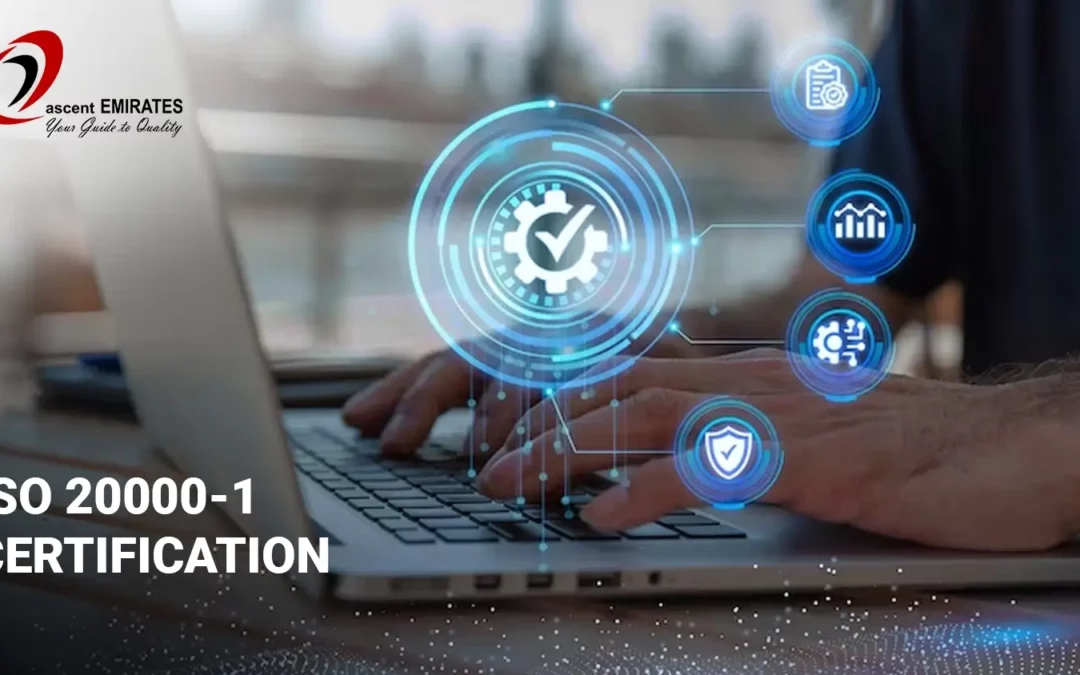ISO 20000-1, the worldwide norm for IT Service Management (ITSM), assumes a vital part in assisting organizations with upgrading their service delivery and guaranteeing consumer satisfaction. In spite of its significance, different misinterpretations and legends encompass ISO 20000-1 Certification, prompting disarray and possible falterings among organizations thinking about its execution.
In this blog, we plan to expose these myths, giving clearness and encouraging a superior understanding of ISO 20000-1.
Myth 1: ISO 20000-1 is Only for Large Organizations
One pervasive misguided judgment is that ISO 20000-1 is planned solely for enormous endeavors with broad IT foundations. Truly, ISO 20000-1 is versatile to organizations, everything being equal. Whether you’re a small startup or a global partnership, the standard offers an adaptable system that can be customized to meet the particular requirements and size of your IT services.
Myth 2: ISO 20000-1 is Too Complex to Implement
A few organizations wonder whether to seek ISO/IEC 20000-1:2018 because of the apparent intricacy of its execution. As opposed to this conviction, ISO 20000-1 is organized in a way that works with a precise and reasonable execution process. With legitimate preparation, and responsibility from the association, accomplishing the certificate is a reasonable and feasible objective.
Myth 3: ISO 20000-1 is Merely a Documentation Exercise
Another common myth is that ISO 20000-1 execution is essentially about making broad documentation without conveying substantial upgrades to service management. Truly, the standard underlines a cycle-situated approach, empowering organizations to zero in on constant improvement, effectiveness, and consumer satisfaction. ISO 20000-1 Documentation is only one perspective; the genuine worth lies in the functional execution of best practices.
Myth 4: ISO 20000-1 Only Covers Technical Aspects
ISO 20000-1 is frequently erroneously related exclusively to specialized parts of ITSM. In truth, the standard adopts a comprehensive strategy, tending to specialized processes as well as management and organizational viewpoints. It considers the whole help lifecycle, enveloping system, plan, progress, activity, and persistent improvement.
Myth 5: ISO 20000-1 Certification is a One-Time Effort
A few organizations accept that accomplishing ISO 20000-1 certification is a one-time exertion, after which they can unwind. In actuality, keeping up with certification requires progressing responsibility and persistent improvement. ISO 20000-1 urges organizations to consistently survey and improve their ISO/IEC 20000-1 IT Service Management processes, ensuring they stay lined up with business goals and the industry’s best practices.
Myth 6: Implementing ISO 20000-1 is a Bureaucratic Burden
The standard gives an adaptable structure, not an unbending arrangement of rules. Organizations can fit their execution to their particular necessities and settings. Present-day certificate bodies offer smoothed-out strategies and assets to limit regulatory weights.
Myth 7: ISO 20000-1 Certification Guarantees Perfect IT Service
No standard can dispose of all IT issues. Notwithstanding, ISO 20000-1 aids organizations in proactively recognizing and overseeing possible issues, limiting their effect on business tasks. The emphasis is on consistent improvement, not accomplishing a condition of perfection.
Myth 8: ISO 20000-1 Certification is Expensive & Time-Consuming
The expense and time responsibility shift contingent upon the association’s size, existing IT cycles, and picked certification body. Notwithstanding, the possible profit from the venture (return for capital invested) can be critical through superior help quality, decreased costs, and expanded customer satisfaction.
The Truth About ISO 20000-1:
Carrying out ISO 20000-1 is an essential choice that can improve IT administration conveyance, help productivity, and exhibit a promise of quality to partners. By exposing the legends encompassing the norm, organizations can make informed decisions about its expected advantages and reasonableness for their particular necessities. Keep in mind, ISO 20000-1 is definitely not an enchanted slug, however an incredible asset for constant improvement that can engage organizations to accomplish their IT service management objectives.
Notwithstanding the above mentioned, here are a few explicit instances of how ISO 20000-1 can help organizations:
- Improved service quality: By following prescribed procedures and zeroing in on persistent improvement, organizations can convey more solid and predictable IT administrations.
- Reduced costs: The standard aids organizations in recognizing and taking out failures, prompting cost reserve funds in regions like incident management and goal.
- Increased customer satisfaction: Further developed help quality and responsiveness lead to more joyful clients, which can convert into expanded faithfulness and income.
- Enhanced compliance: The standard lines up with numerous other IT-related guidelines and norms, working on consistence endeavors.
- Demonstrated commitment to IT best practices: Accomplishing the ISO 20000-1 Standard certificate features an association’s obligation to give excellent IT services, possibly giving them an upper hand.
Conclusion:
Dissipating these myths is fundamental for organizations considering or presently executing ISO/IEC 20000-1:2018. Understanding the real essence of the standard permits organizations to go with informed choices, understanding the advantages of further developed help the board, expanded effectiveness, and improved consumer satisfaction.
ISO 20000-1 is definitely not an overwhelming test, yet an essential chance for organizations to succeed in delivering excellent IT services.



